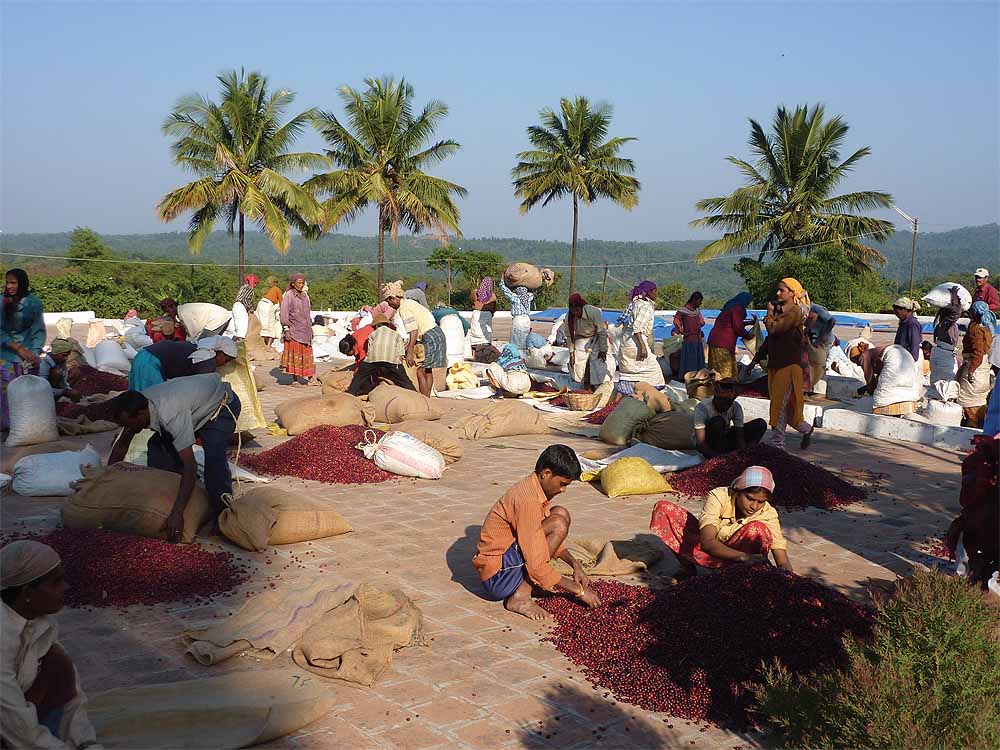
DR Wakefield
From community to cup
As an independent family business made up of real coffee enthusiasts, DR Wakefield prides itself on providing its customers with the right coffee, at the right price, while also doing all it can to support the communities that help it to achieve this aim
Coffee has been a huge part of Simon Wakefield’s life for almost as long as he can remember. It was in 1970 that Simon’s father Derrick, who was a roaster buyer at the time, realised that he had supply limitations for both specialist and regular grade coffees in the UK, and so founded DR Wakefield to supply trade customers both large and small. Come 1982, Simon was beginning his own career path by taking up a position on the cocoa logistics desk of a commodity trader, before moving out to Papua New Guinea in 1984 to work with an exporter and obtain first-hand knowledge about local supply chains, processing methods, buying from farmers, blending, quality control and exporting. With a wealth of information in his head, Simon returned to the UK in 1986, joining DR Wakefield under the watchful eye of his father.
In the decades that followed, Simon would play an important role in bringing the Fairtrade brand to the UK and introducing the Rainforest Alliance, and its accreditation, to the country in 2003. All the while, the now Chairman of DR Wakefield oversaw the continued growth of the company, which today sources and sells more than 360 different blends of coffee, from great value commodity coffees to speciality arabica and robusta, from growers in 28 countries, to over 40 countries around the world.
“From day one, this has been a business driven by a group of individuals I like to refer to as ‘real coffee people’,” Simon explains. “The vast majority of our people who are buying and selling coffee for DR Wakefield have lived in producing countries, and visit our farmers and growers on a regular basis. These people also share mine and my father’s commitment to traceability and maintaining strong, open relationships as we work to educate all sides of the supply chain for the betterment of the entire coffee industry.”
Focus on quality
In order to maintain consistent quality of its products, DR Wakefield not only cups at origin, pre-ships approvals and landed samples, and regularly redraws samples from its warehouse for inspection, but also employs no less than six qualified Q-graders whose job it is to ensure that the quality of the coffee it buys matches what is delivered. “Everything from size, grade, moisture and taste profile is tested thoroughly by our people,” Simon states. “We also apply a similar approach to our suppliers as we do in our recruitment process, in that we are always on the lookout for growers who have the same passion and ethics as our own in their DNA, doing the right things and doing it for the long haul, not just to make a quick buck.”
Fostering a happy and sustainable coffee industry is of huge importance for Simon and his team. At its heart is belief that the concept of social responsibility is about more than simply making a financial donation, rather it is about working to improve the long-term interests of people and communities. This begins by paying fair, sustainable prices for the coffee that is grown and extends to channelling support, and capital, into various projects that range from the drilling of potable water to the construction of schools.
New skills
From an internal perspective, 2017 has been an exciting year for DR Wakefield, one which began with the doubling of its office space. “This increase in space has allowed us to significantly increase our lab and testing areas within our facility,” Simon says. “The expansion has also meant that we can accommodate a greater number of visitors, allowing us to better promote the physical side of what we do. It has also allowed us to strengthen the team in every department, adding new skills and building up our knowledge base even further. As we are often the voice of our producers in the UK and Europe it is vital that we are able to showcase their products in the best way possible, and such investments as those we have made allow us to do so.”
Developing markets
The company has continued its prosperous year by being named within the prestigious The Sunday Times International Track 200 league table, which showcases Britain’s private companies with the fastest-growing international sales. “Our ranking at number 107 in this year’s table is a wonderful achievement for the company and places us in the company of some of the most impressive and dynamic businesses and organisations around today,” Simon enthuses.
With consumers becoming increasingly knowledgeable of, and invested in, the traceability of the products they consume there are considerable growth opportunities for businesses like DR Wakefield, particularly in developing markets such as Eastern Europe. This growth has helped bring about the opening of the company’s first overseas warehouse in Lithuania in 2016.
“Our Lithuania facility may be our first overseas location, but it certainly won’t be our last, with another two potential facilities being considered, both in Europe and further afield,” Simon concludes. “While the UK remains a brilliant, growing market, and one that we will remain incredibly active within, we foresee greater growth opportunities outside of it and capturing that will be the basis of our strategy as we move forward.”